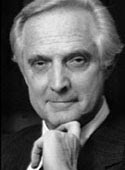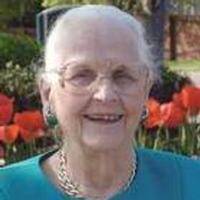Within the last week two wise elders who have influenced me in very different ways have died. Here is a very brief thanks for each one.
Academic Legacy:
A Generative Thanks for Don Browning (1934-2010)

Browning will be widely celebrated and memorialized for his voluminous contributions as a teacher and scholar at the University of Chicago Divinity School. He will be remembered for the far reaching way his writing and organizing made connections between academic religion and the social sciences, church and academy, theology and public policy, and the religious shape of and supports for marriage and family.
Here I offer one story of a time spent with him midway through my doctoral program. Don Browning was the teacher of my teachers: Bonnie Miller-McLemore and Volney Gay, who both earned their PhDs at the University of Chicago. The life cycle of influence in academia is short. Each new generation of scholars can come to maturity and be teaching the next generation within a matter of a few years or just a decade.
During 2003-04 academic year I worked on a grant called “Teaching for Ministry” at Vanderbilt Divinity School and Graduate Department of Religion. Part of our strategy was to bring in the best thinkers to help the VU faculty figure out how to teach and shape the next generation of theological school teachers. Of course Don Browning was on our list. He was both a leading figure in practical theology and over the years had advised scores of students who earned their doctorates and presently teach in theological schools all over the US and beyond.
I’m sure he said lots of important things during his visit. The one that stands out to me, however, was this. Doctoral dissertations should not try to take every last step from analysis to constructive proposal of the practical theological task. No, a really rich and substantive analysis that addresses historical, social scientific and theological angles of vision on a given topic is enough to make a viable dissertation. For someone who had not yet begun my writing, it was a relief to hear this advice. And I took it to heart. I focused my efforts on thinking through and writing a compelling analysis of the women in my study and the ways their lives reinterpreted a larger social change. I didn’t also have to go the extra two miles to say what constructive thing we ought to do as a result of this more robust understanding. Seeing the problems and their shape was more than adequate for the task of dissertating.
Now as I finish revisions on my dissertation and it becomes a book, I’m more ready to make constructive proposals. In fact they were right there all along. It is my task at this point to make such proposals more explicit. (More on that later this summer.) I’m so incredibly grateful for that advice from my academic “grandparent.” I use his work in many ways, and I have critiques of it as well. Yet, he was greater than the sum of his books. And his advice like much else he did and topics he addressed was practical through and through.
Practical Faithfulness:
A Joyful Thanks for Alma May Scarborough (1913-2010)  Alma May told everyone who came to see her in the last couple of weeks that she was ready to go. She had lived long enough, and now it was time. But she was apparently not bitter about this. Instead her joy kept her buoyant right to the end, when she took to sleeping round the clock.
Alma May told everyone who came to see her in the last couple of weeks that she was ready to go. She had lived long enough, and now it was time. But she was apparently not bitter about this. Instead her joy kept her buoyant right to the end, when she took to sleeping round the clock.
As a member of our congregation she kept us all on our toes because if there was a new book out on religion or politics, she had probably read it and could debate its finer points. She raised five children mostly on her own, and for over two decades she was a writer and editor of preschool materials for churches. She leaves quite a legacy of influence on thousands of Baptist children and grown-ups.
The story from my own experience that stands out most about Alma May happened when our daughter was brought to the church to be introduced officially to our congregation. The tradition in our congregation is to call for a commitment from everyone to take part in raising our children in faithfulness.
As you know many people would call this a “baby dedication.” Now having done a few of them myself as a minister, and having grown up in a Baptist congregation, I know the difference between a baby dedication and a parent dedication. We can’t really dedicate babies to faith. In Baptist belief and practice discipleship is a mature decision made by adults (or minimally by older and precociously wiser children).
This is how she reminded me after the service. She rolled right up to me in her wheel chair and said, “Now you know we can’t really dedicate babies, because they have to grow up and decide for themselves. We can only promise as adults who love them, to dedicate ourselves to teaching and raising them faithfully.” Of course she was right and she brought me up short – not because I didn’t agree with her; I did – but because it is easy to get careless with our words about such rituals and shared covenants.
I often think about Alma May’s reminder. And I’m grateful indeed that she’s been a living saint in our faith community. She didn’t just love children or families in some sentimental way. She was thoughtfully and insightfully engaged in faithfully loving and nurturing people to become the children and family of God.
Tonight I say thanks be to God for Alma May Scarborough and Don Browning. May I strive for such practical wisdom as they each embodied.



